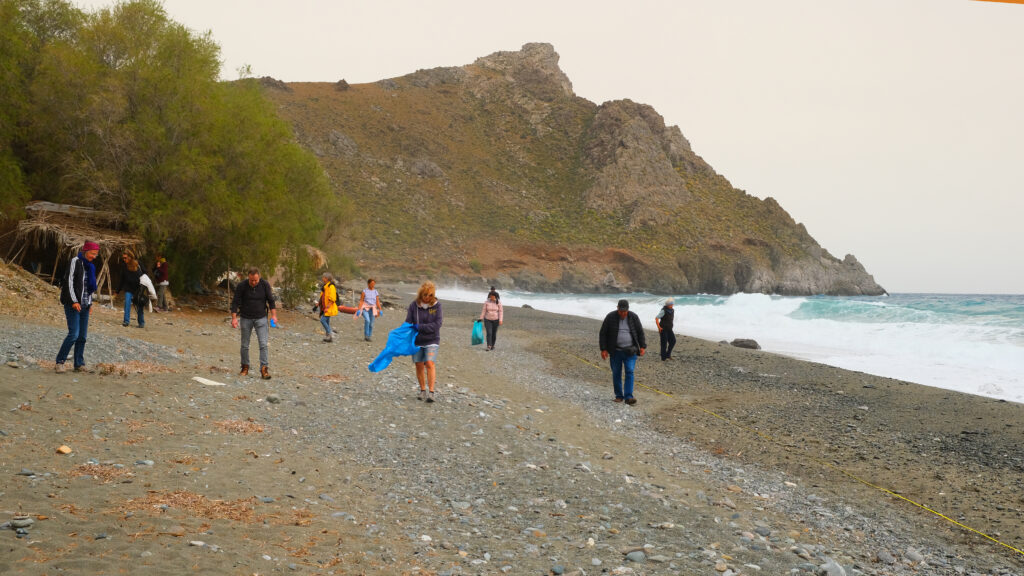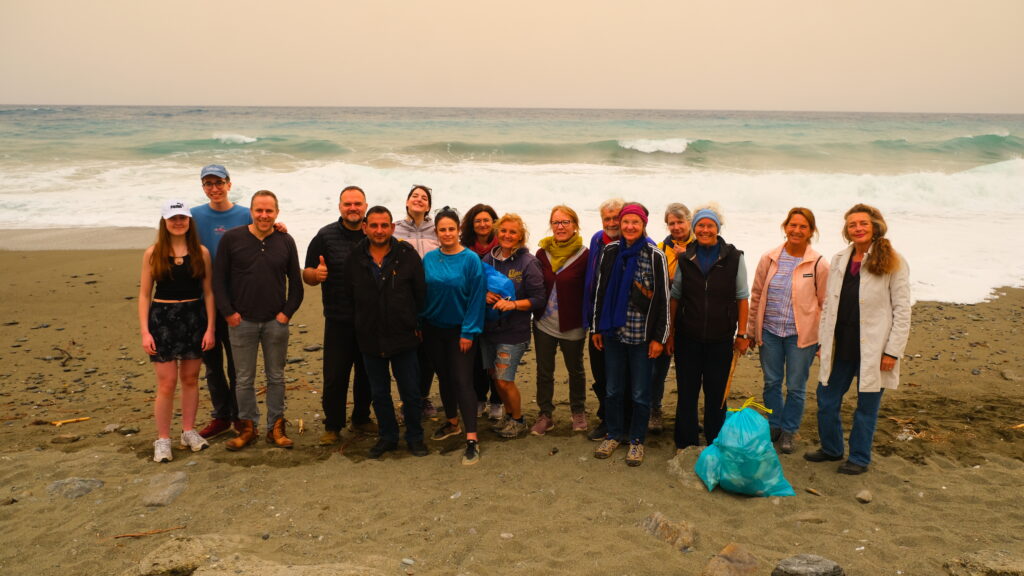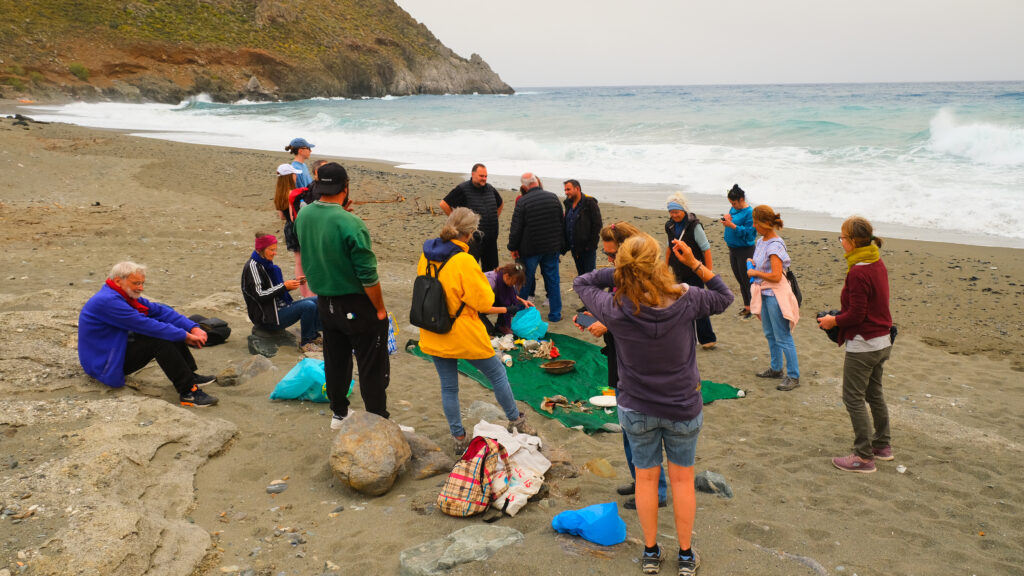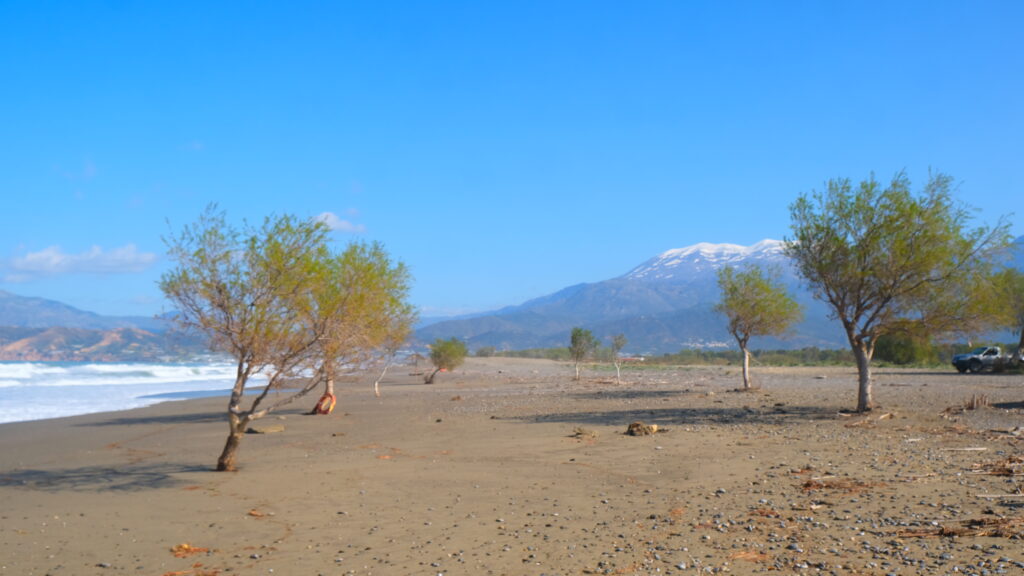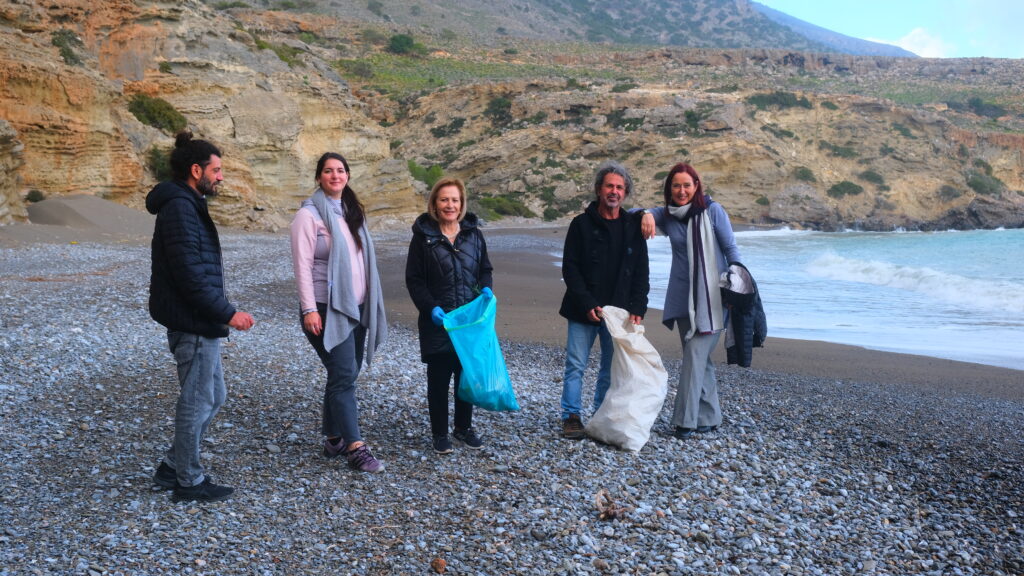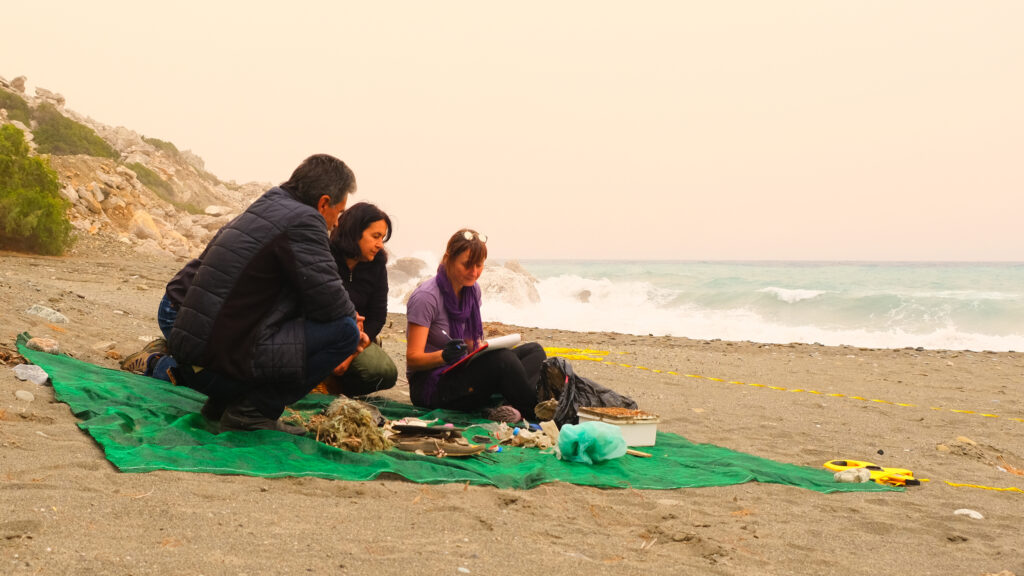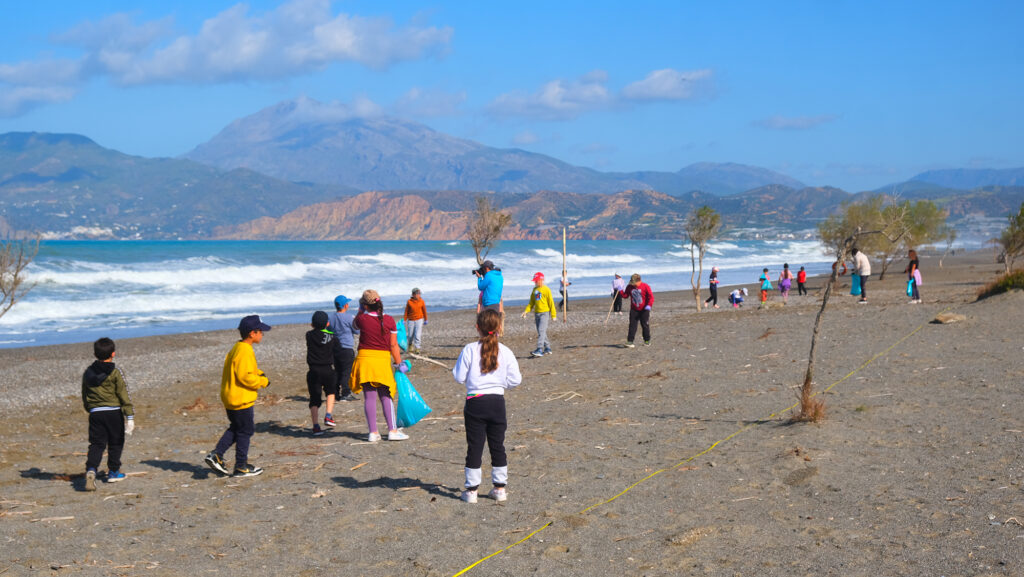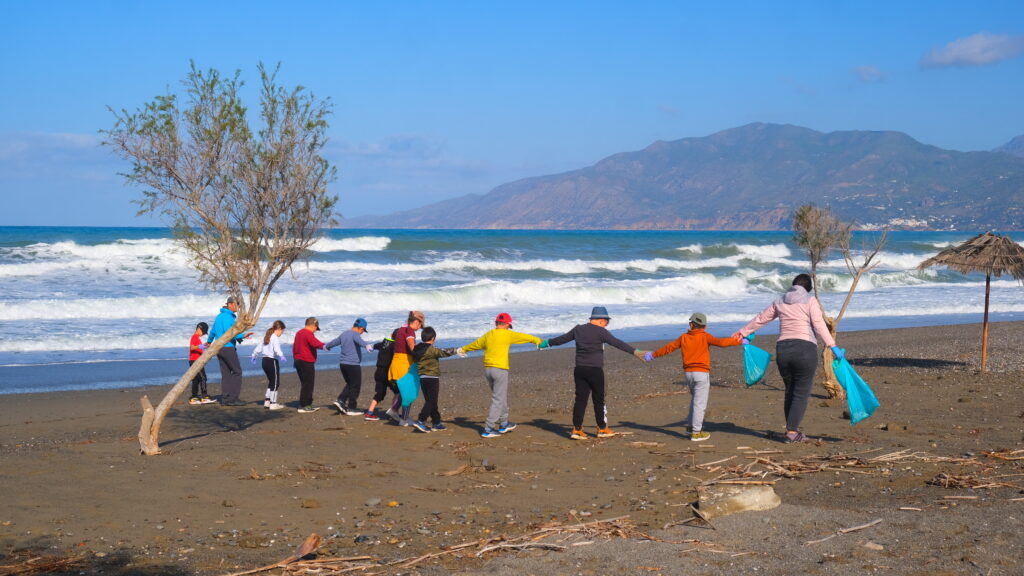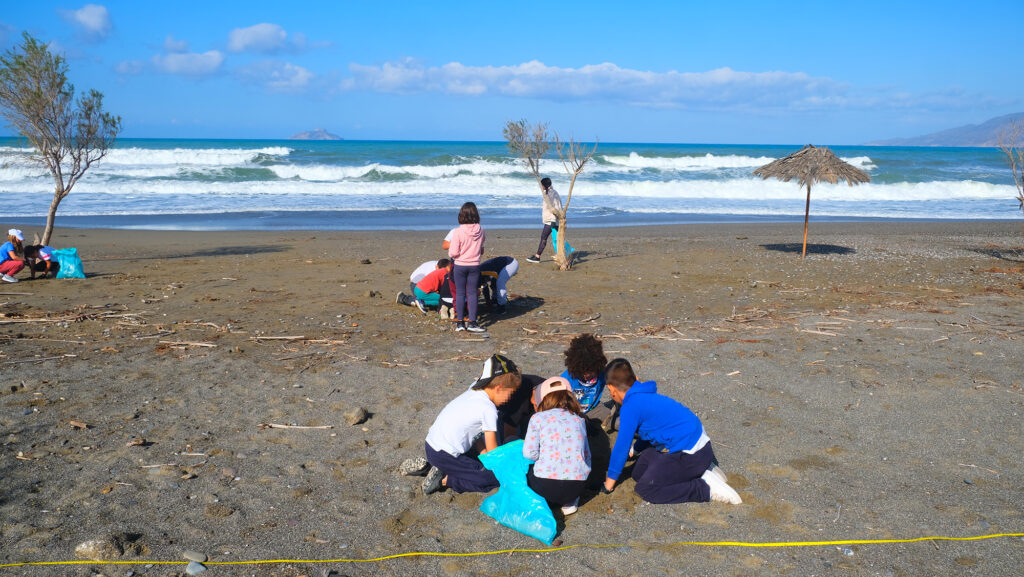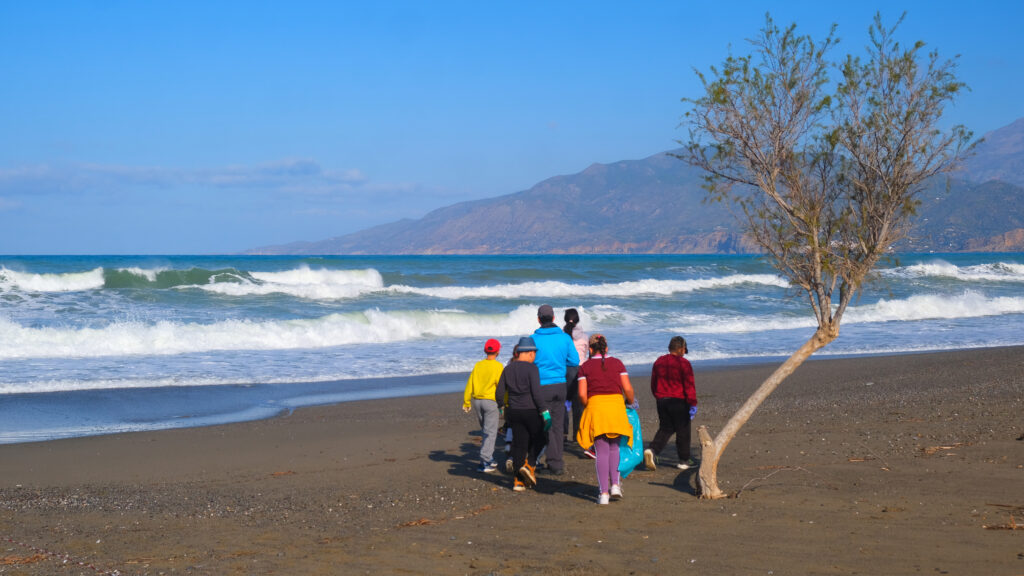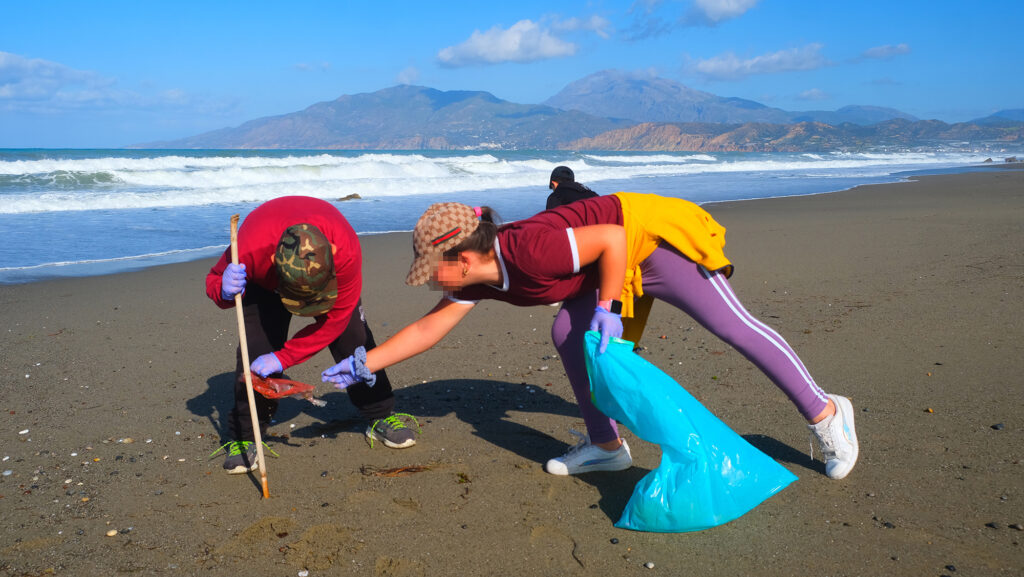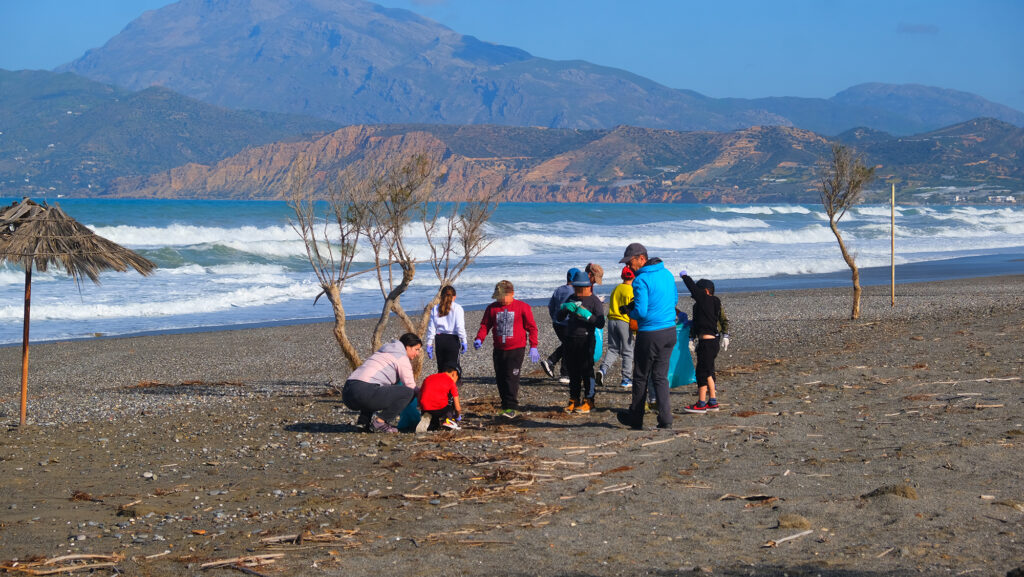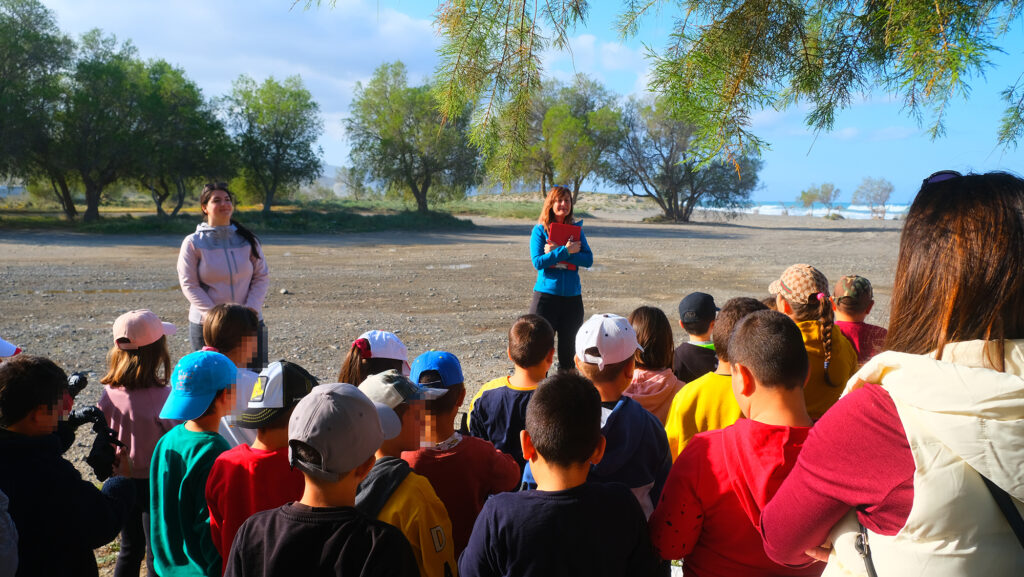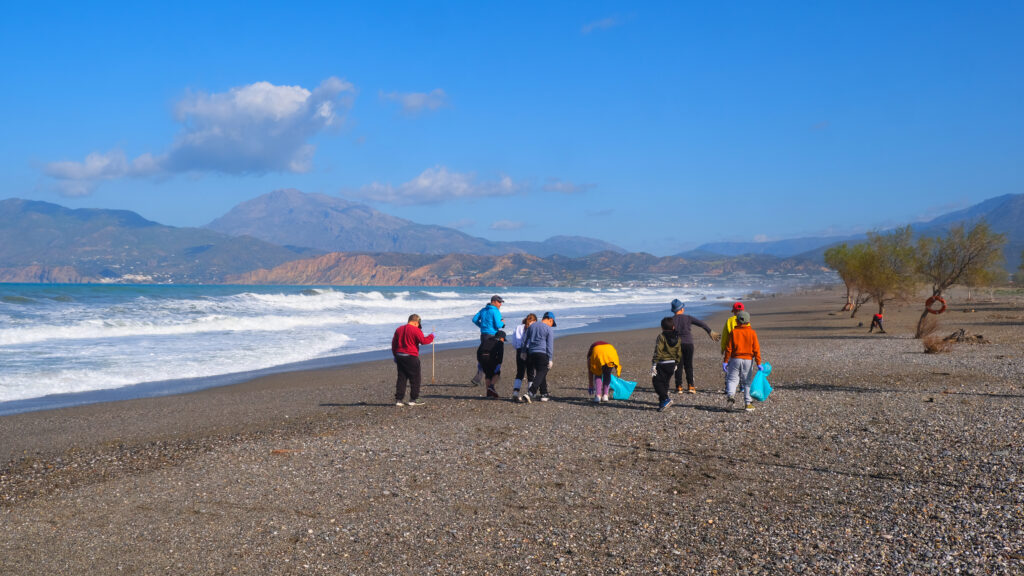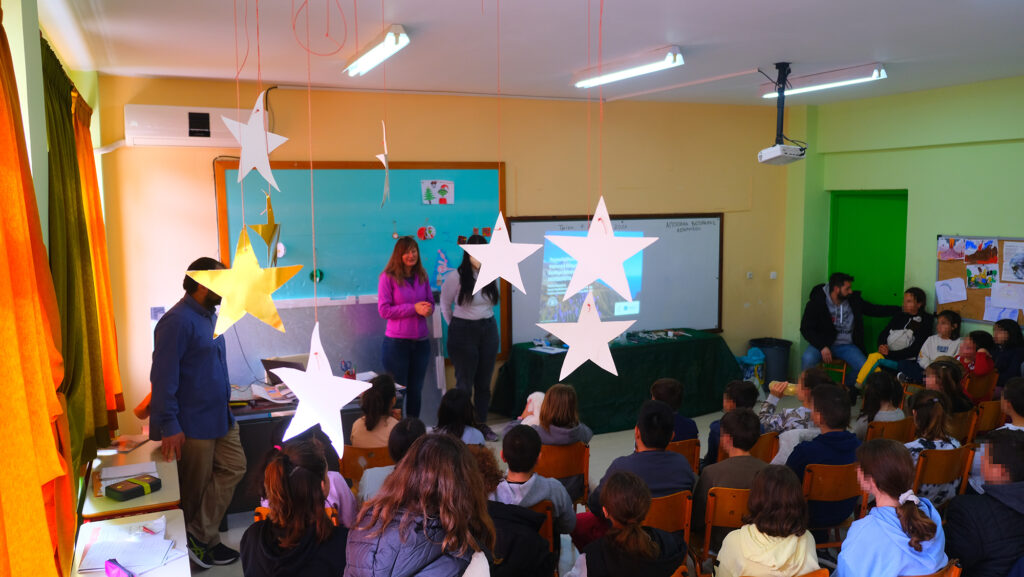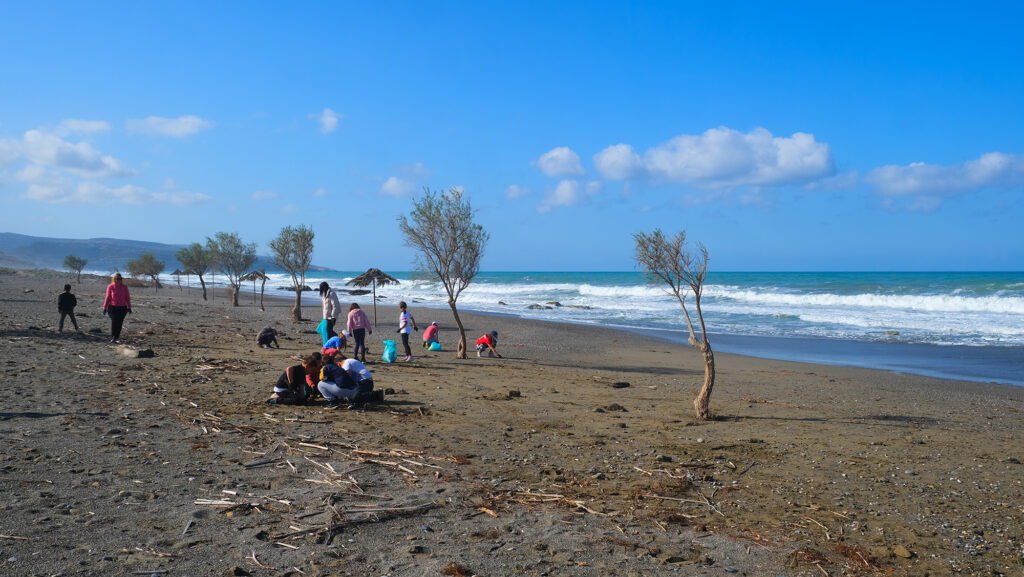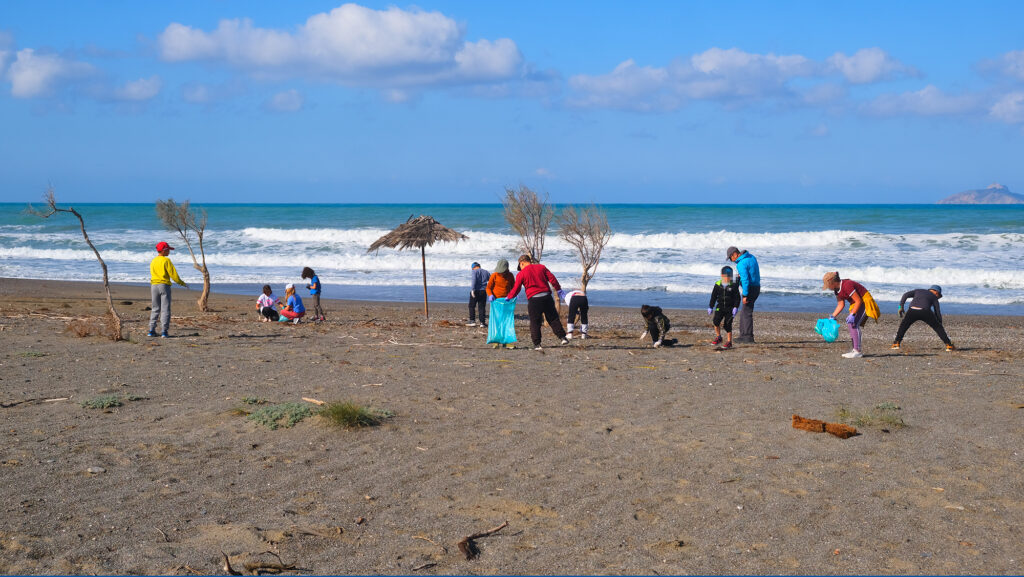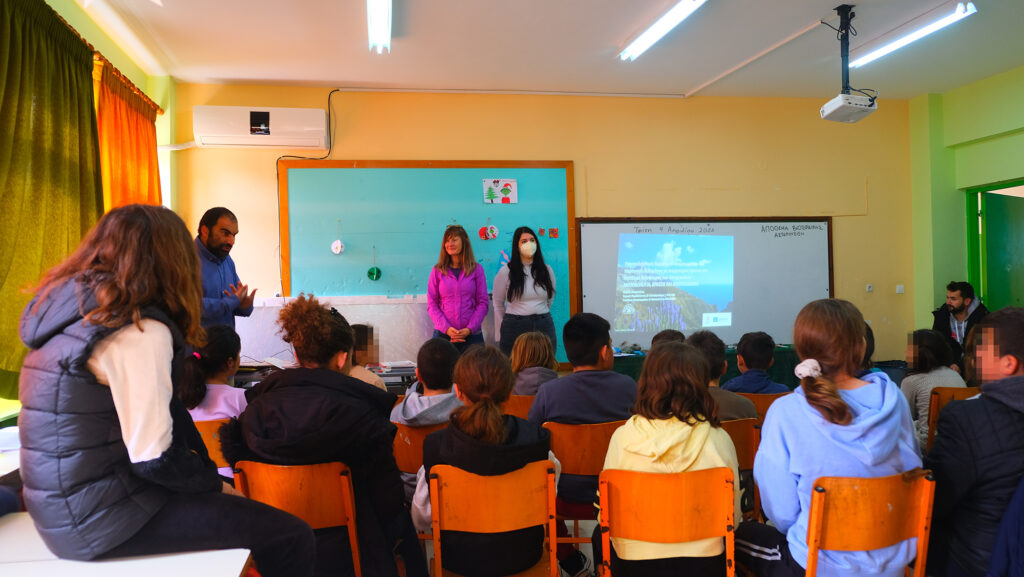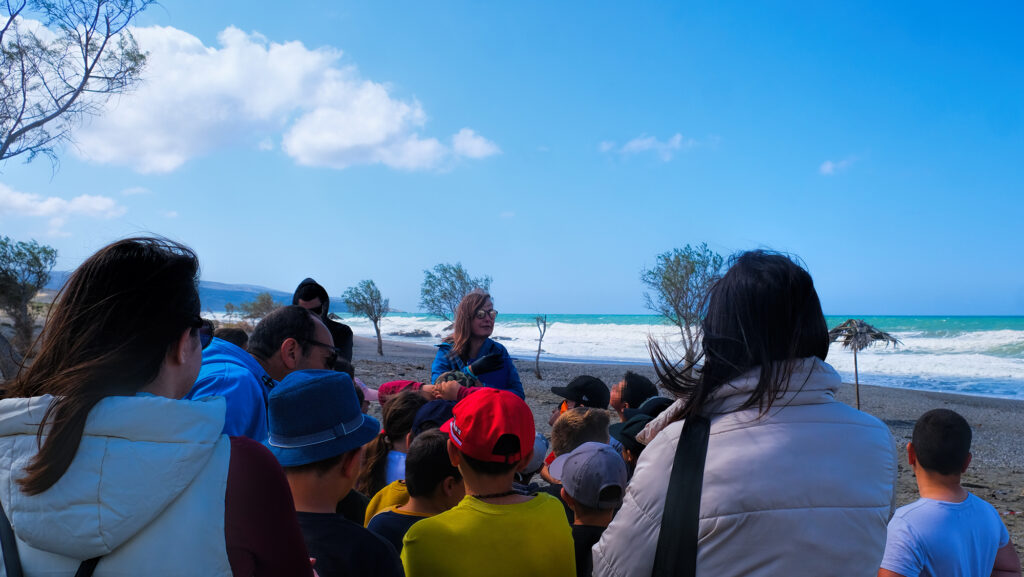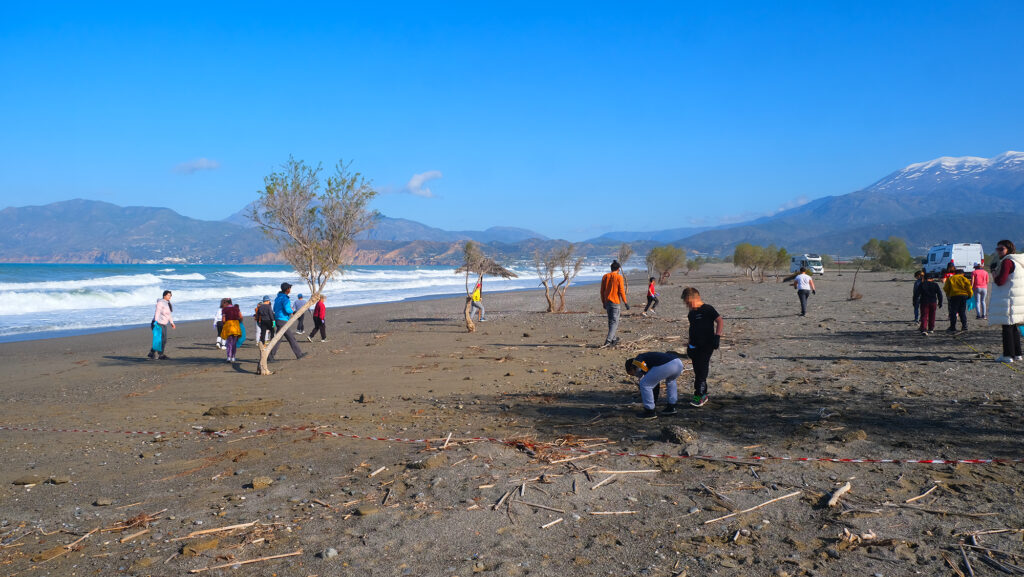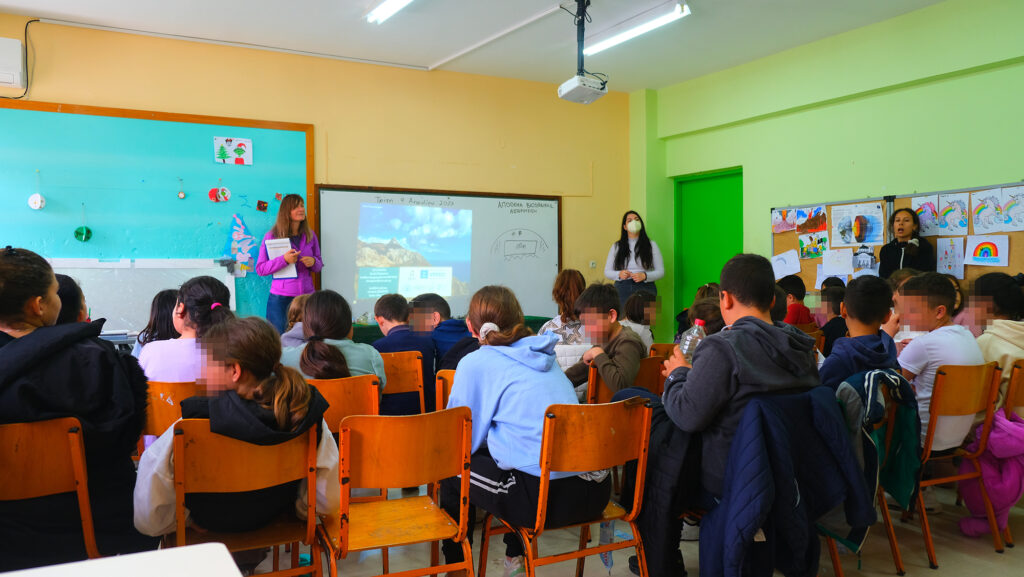Similar to other biosphere reserves and protected areas, the Asterousia Biosphere Reserve is increasingly impacted by marine litter, which accumulates and poses a threat to habitats, species, and sustainable development. In an effort to improve knowledge and evidence surrounding marine litter in the biosphere reserve, MIO-ECSDE organized the second community-based marine litter monitoring campaign this week.
A total of nine locations were successfully surveyed, and 1434 litter items were collected and classified with the involvement of 150 members from the local community, including residents, long-term visitors, grassroots NGO members, teachers, and school children. Preliminary results indicate that over half of the surveyed beaches exceeded the European beach litter threshold value of 20 items/100m, by 5 to 33 times, signalling a need for action. The most commonly found items were related to food consumption and recreation, while several locations had numerous agriculture-related items.
The second marine litter campaign was well-received and appreciated by all participants who joined the MIO-ECSDE team at the beaches of Tris Ekklisies, Pahia Ammos, Dytikos, Psili Ammos, Platia Peramata, Kommos, Avrathias, Agios Ioannis, and Elygias.
One of the project’s unique aspects is its promotion of a hands-on inquiry-based learning style, involving primary schools within the biosphere reserve. In this second campaign, 130 students and teachers were involved, while a total of 215 teachers and students from four primary schools in Petrokefali, Pitsidia, and Tympaki participated in the first and second series of school events held by the project.
Mr. Georgios Anagnostakis, Headmaster of the Primary School of Pitsidia stated: “Today, we had the pleasure of welcoming the MIO-ECSDE team. Their great enthusiasm inspired us to raise awareness about a crucial problem in our region, which is the management of waste generated by human activities. Through their comprehensive educational intervention, they enhanced our knowledge on proper waste management practices and opened up new horizons for us in protecting the environment. We sincerely thank them and wish them well in continuing their vital work.”
Dr. Amalia Filippakis, Expert in Education for Environment and Sustainability & Education Consultant stated: “This participatory research in the coastal environment of the Asterousia BR, which also involved students from schools in the region, is a significant hands-on environmental action. The students participated with great interest, and their active involvement in the entire effort led to enhanced awareness on the need to protect our coasts and sea. We look forward to the research results upon completion!”
The participatory science campaign implemented in the Asterousia Biosphere Reserve deployed a harmonized monitoring approach, following the “Guidance Document on Monitoring of Marine Litter in European Seas” and the “Joint List of Litter Categories for Marine Macrolitter Monitoring” developed by the Technical Group on Marine Litter of the Marine Strategy Framework Directive, a European Union legislation that aims to protect Europe´s seas and ensure its sustainable use.
“I was thrilled to have the opportunity to meet so many motivated individuals in the Asterousia Biosphere Reserve. Witnessing their transformation into a powerful taskforce committed to generating fit-for-purpose data was truly inspiring. This data is instrumental in addressing one of the greatest threats of our times – marine litter,” said Ms Thomais Vlachogianni, Policy/Programme Officer at MIO-ECSDE and Project Coordinator.
The campaign was implemented within the framework of the one-year-long project entitled “Monitoring marine litter and generating fit-for-purpose data through a participatory science approach in Asterousia Biosphere Reserve” funded by UNESCO and the abrdn Charitable Foundation. MIO-ECSDE together with the Local Management Committee of Asterousia & Heraklion Development Agency, MEdIES, HCMR, the University of Crete and its Museum of Natural History seek to provide a concrete showcase of how community-based research can deliver the “Science We Need for the Future We Want”, within the context of the UN Ocean Science Decade and the Ocean Literacy Framework.
Read this in Greek here
Read in French here
